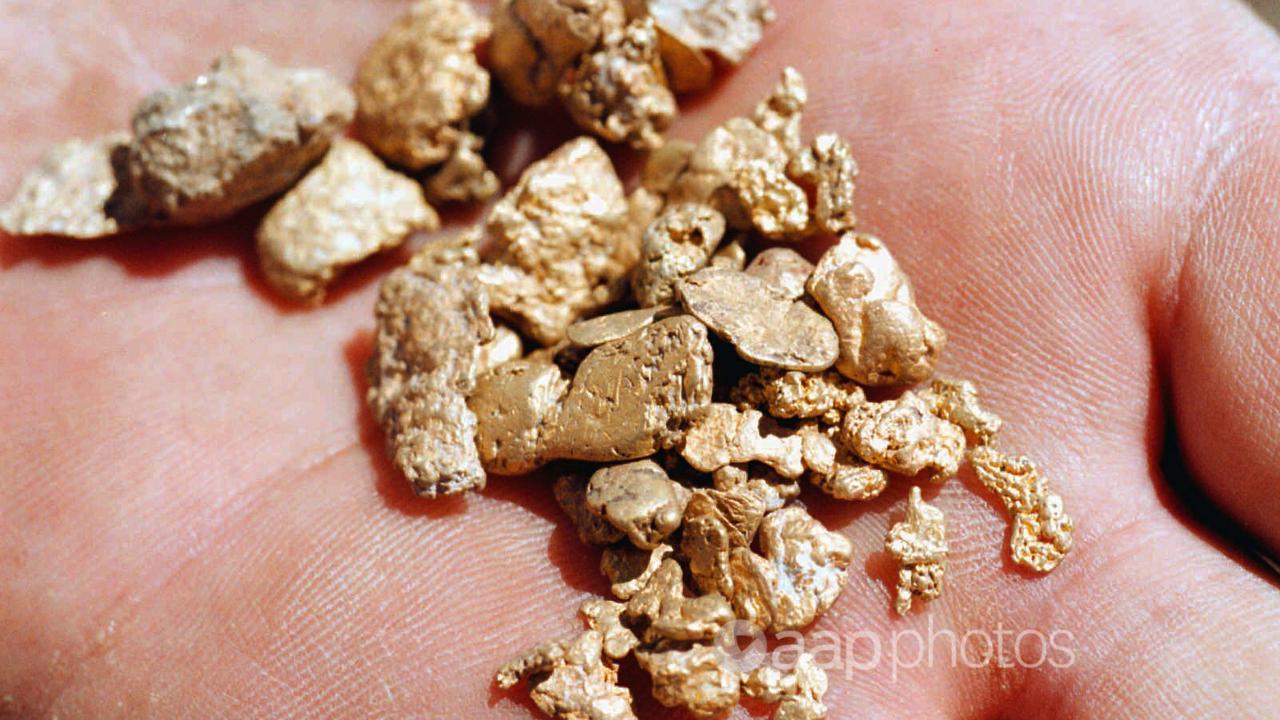People seeking higher brain function are being persuaded on Facebook and TikTok to buy a powder described as monatomic gold, with claims it will improve connections between neurons in the brain.
But experts in cellular chemistry, chemical biology and neurology have told AAP FactCheck the claims are false on multiple scientific grounds.
The powder is plugged in a Facebook post that shares a TikTok video by a user called 4biddenknowledge. The TikTok user also has a website which sells a range of products, one of which, Starfire Gold, is claimed to contain “1 monoatomic element: Gold”.
In the video, he says: “Monatomic gold is a white gold powder. You actually ingest it. It’s a great electrical conductor. Inside of our minds we have billions of neuron connections which have electricity flowing through. What happens is if you now ingest this gold, the theory is that this gold is flowing through the bloodstream, which blood is going into the brain, and as you’re thinking it’s making your connections and your synapses move that much faster, giving you the ability to have a heightened sense of understanding, knowledge, reality.”
Several experts who spoke to AAP FactCheck dismissed the claims.
Associate Professor Peter Crack, a neuropharmacologist at the University of Melbourne, said the claim was false because “our nerves don’t actually communicate using electricity” and “gold is not used in any sort of brain function”.
The Queensland Brain Institute explains neurons in the brain communicate via neurotransmitters, which are molecules used by the nervous system to transmit messages between neurons in a chemical, not electrical, process. This occurs in a small gap between the synapses of neurons. But electrical signals are transmitted within the neuron itself, along a cable called an axon, which can vary in length depending on the type of neuron.
Associate Professor Louise Parr-Brownlie, a neurobiologist at the University of Otago, highlighted two main problems with the claim in the post: ingested gold could not cross to the brain; and gold would not make nerve conduction faster.
“If people ingest gold, that does not mean that it will get into the blood – it would need to be transported or there would need to be breakdown of the gut lining,” Dr Parr-Brownlie told AAP FactCheck in an email.
“There is very tight regulation of all substances that cross from the blood to the brain. Gold will not cross this barrier unless the particles are tiny – 2 nm (nanometres) – and they are coated in something that tricks cells lining the blood vessels in the brain to carry the small gold particles across.”
She said even if this happened, the presence of gold in the brain would not make the axon larger, which is required to speed up nerve conduction.
“The gold would need to help increase the conduction velocity of messages,” Dr Parr-Brownlie said.
“In simple terms, this would mean it would need to make the axon of the nerve get larger in diameter (change the cell’s morphology) and/or change the insulating property (myelin) around the nerve.”
There are also questions about the powder’s authenticity.
Elizabeth New, an expert in bioinorganic chemistry at the University of Sydney, told AAP FactCheck there was no such thing as “monatomic gold”.
“The term monatomic (or monoatomic) refers to elements that are stable as single atoms,” Professor New said in an email.
“Under normal conditions, only the noble gases can exist as monatomic elements (helium, neon, argon, krypton, xenon, radon, organesson). There is no such thing as monatomic gold, as gold is a metal – when in solution it will exist either as an ion, or as a colloid (a suspended clump of atoms).”
Shane Telfer, a chemistry professor at Massey University, told AAP FactCheck while monatomic gold was not possible, ionic gold salts, which are usually a yellow powder, could be dissolved and each gold ion would “float around individually so it is kinda ‘monatomic’ (though chemically speaking the gold is an ion not an atom)”.
He said the terms “monatomic gold” and “white powder gold” were used by people marketing mineral supplements, and it was questionable any gold was in them.
“It is unclear whether this stuff contains any gold at all since, maddeningly, supplements aren’t subject to the same scrutiny as pharmaceuticals,” Prof Telfer said in an email.
The Verdict
The claim so-called monatomic gold can be ingested to improve brain function is false. Experts dismissed it on several scientific grounds including that gold cannot chemically exist in a monatomic state and can’t enter the bloodstream. Even if it could, the transmission of messages between neurons in the brain is a chemical process via neurotransmitters, not an electrical conduction.
False – The claim is inaccurate
AAP FactCheck is an accredited member of the International Fact-Checking Network. To keep up with our latest fact checks, follow us on Facebook, Twitter and Instagram.
All information, text and images included on the AAP Websites is for personal use only and may not be re-written, copied, re-sold or re-distributed, framed, linked, shared onto social media or otherwise used whether for compensation of any kind or not, unless you have the prior written permission of AAP. For more information, please refer to our standard terms and conditions.


















